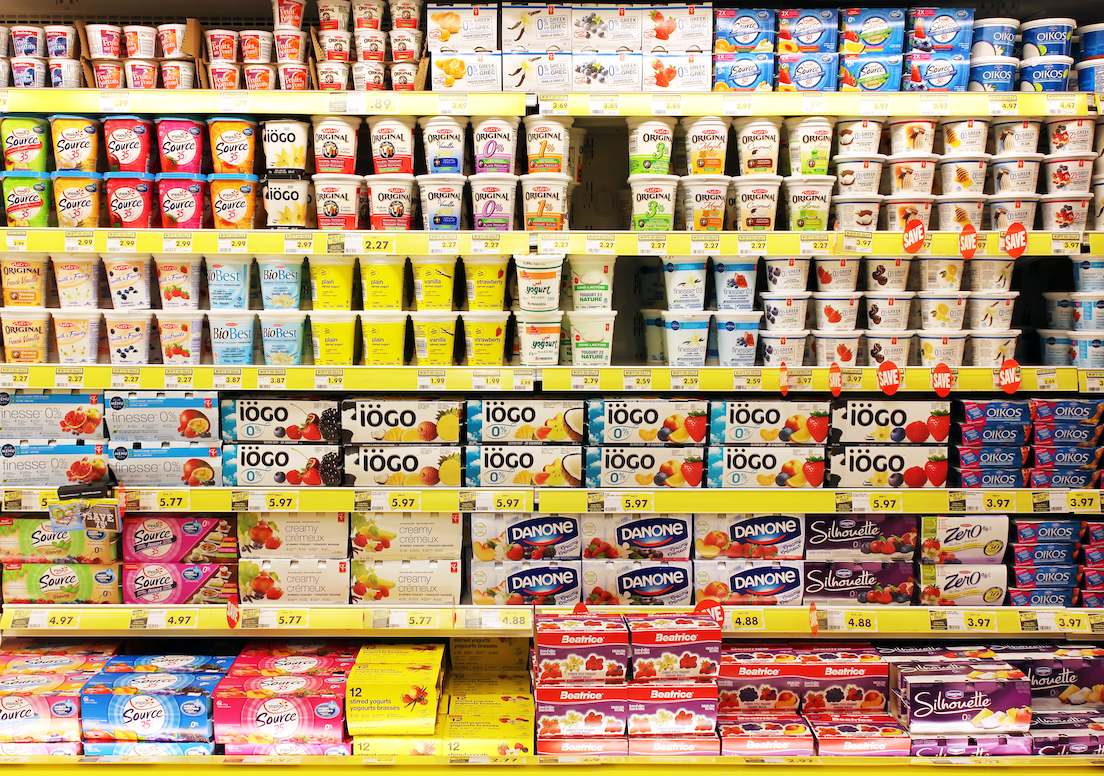
Most yogurt products contain more sugar than is recommended
Yogurt has long been branded as a healthy food option that can help maintain weight and proper digestion. Eaten for everything from breakfast to dessert, yogurt contains healthy bacteria and is a good source of nutrition.
However, a number of yogurt products, especially those marketed to children, often contain high sugar and fat contents despite the national dietary guidelines that recommend low-fat and low-sugar dairy products.
The average consumer shopping at the local supermarket isn’t always aware of the fat and sugar contents of their food and simply buy what the grocery store keeps in stock.
Researchers from the School of Food Science and Nutrition at the University of Leeds in the UK conducted a study that compared yogurt products with the national dietary guidelines to see how much more sugar and fat was included.
The study was published in the journal BMJ Open.
900 yogurts and yogurt products were analyzed for the study, all of which were available from five major UK online supermarket chains.
The researchers divided the products into eight categories: children’s, dairy alternatives, desserts, drinks, flavored, fruit, natural/Greek, and organic.
A product’s sugar and fat content were classified depending on European Union regulations. If a yogurt product had a fat content of 3 grams/100 grams or less and five or fewer grams of total sugar/100 grams, it was considered low fat and sugar.
Besides the greek yogurts, most of the other yogurts were above the low sugar threshold.
The products meant for children had the least amount of low sugar items which is a cause for concern because obesity rates among children are climbing both in the US and UK.
Sugar levels in the yogurt products ranged from 16.4g/100 g to 10.8 g/100 g. Fat content varied and was either above or below the recommended threshold.
The study confirms that supermarkets carry foods that contain much higher levels of sugar and fat than is recommended, and not just in yogurts.
“While yogurt may be less of a concern than soft drinks and fruit juices, the chief sources of free sugars in both children and adults’ diets, what is worrisome is that yogurt, as a perceived ‘healthy food,’ may be an unrecognized source of free/added sugars in the diet,” the researchers wrote of their study. “Not all yogurts are as healthy as perhaps consumers perceive them, and reformulation for the reduction of free sugars is warranted.”
—
By Kay Vandette, Earth.com Staff Writer













